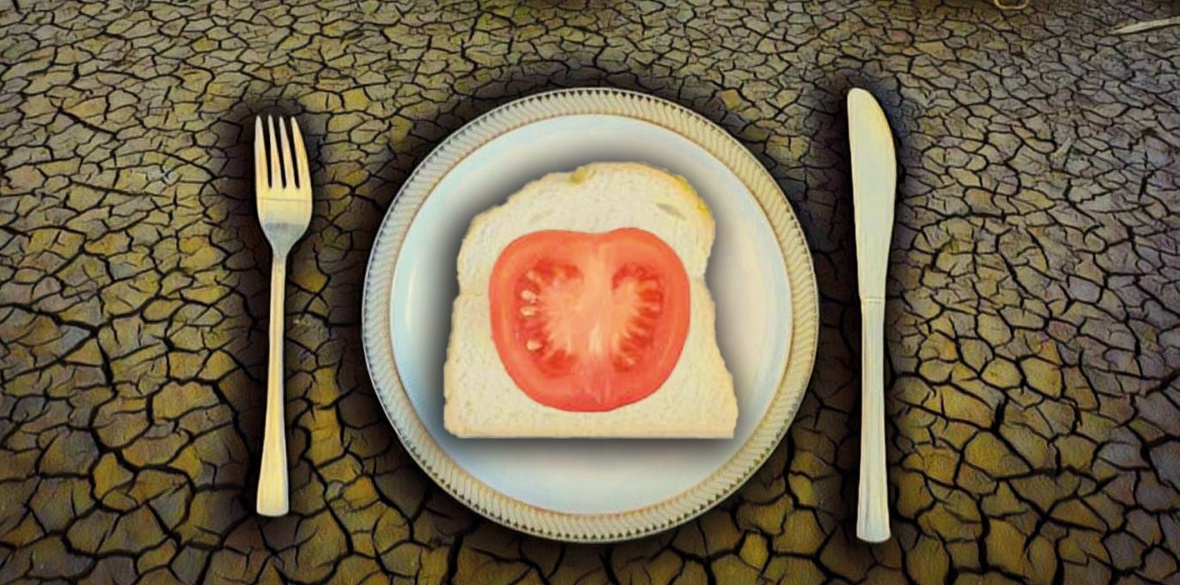This is the last article you can read this month
You can read more article this month
You can read more articles this month
Sorry your limit is up for this month
Reset on:
Please help support the Morning Star by subscribing here
NEWS on Wednesday that Britain’s overall rate of inflation eased down a fraction to 10.1 per cent disguised the shocking continued increase in the price of food.
Average food prices for British consumers are now rising at 19.6 per cent — the highest in the official figures for 45 years. And this is only an average price — the price of some essentials, like sunflower and other cooking oils, is rising far higher, at over 25 per cent.
Coffee and tea prices are rising at the fastest rate on record. Much of this is driven by the soaring price of food across the globe, as shortages bite. With Britain importing almost half the food we eat, rising global prices have a rapid effect on prices here.
It should be obvious how inadequate the mainstream explanations and proposed solutions are. Chancellor Jeremy Hunt claimed, just before these figures came out, that refusing to meet the pay demands of public-sector workers like the junior doctors was an essential part of fighting inflation.
But this is obviously nonsensical: paying a nurse or a teacher less in Britain won’t somehow cut the price of coffee from Brazil.
Hunt’s likely motivation is not one he has spelled out directly himself, but leaks from the Treasury to the Financial Times have made the government’s thinking clear. The Treasury believes that public-sector wages must be held down, perhaps (according to the FT) to 5 per cent rises or less, to discourage higher wage demands in the private sector.
Once, in the decades before the 1980s, governments would operate “incomes policies,” trying to set an overall limit for pay increases across the whole economy. These would eventually provoke great anger from workers, sparking strikes and disputes as people found their pay held below rapidly rising prices.
The current government is trying to do the same thing by the back door, by squeezing the public sector as hard as possible to try to discipline the whole working class.
The result is public services like the NHS and our schools being brought to their knees as public-sector workers simply can’t afford to stay in their jobs, resulting in huge staff shortages.
And it’s not going to end inflation which today has almost nothing to do with pay increases, with pay currently rising far lower (at 6 per cent a year) than price increases.
Instead, we are suffering the consequences of the climate and nature emergency as amplified by profit-seeking big business. The combination of both is what creates this cost-of-living crisis, which in Britain we typically experience as the prices of essentials rising far more rapidly than pay.
Our food systems are the clearest example of the problem. Every week brings fresh news of some ecological disaster: Argentina, the world’s largest meat exporter, is suffering from its worst-ever drought, crippling farm production. Grain crops in India have been hit by floods, after last year’s extreme heat-damaged harvests (the government is maintaining an export ban on wheat in response). And in Spain, 60 per cent of the country is suffering from drought, well ahead of the summer months.
These global effects have consequences in Britain. A quarter of our fresh fruit and veg comes from Spain, meaning poor harvests and shortages there will most likely feed into price rises and even shortages here. Elsewhere in the world, the situation is desperate: the UN World Food Programme thinks 345 million people are at risk of outright starvation across the globe.
Climate change, bringing with it more extreme weather events and biodiversity loss, means that we should expect this situation to worsen over time. Yet some are doing extremely well out of it. The super-profits of the fossil fuel giants are notorious. As energy prices soared last year, the profits of BP, Shell and the rest soared with them.
But the same thing is happening with food. As prices have soared, the major businesses that dominate global food production have been able to make record profits, exploiting the shortages. Research by Unite the union has found that the four largest global agribusinesses made $10.4 billion in profit last year, up 255 per cent.
Further down the supply chain, the eight largest British food manufacturers saw their profits rise 21 per cent since the pandemic. And the three giant supermarkets that dominate British food sales — Tesco, Asda and Sainsburys — have seen their profits double since the pandemic.
Faced with the combination of climate change and profiteering, there are three things that need to happen.
First, inflation-busting pay rises need to be paid across the economy, reducing the impact of soaring prices for workers. Profits should be squeezed to make this happen.
Second, there is a growing case for price controls on essentials, like we have seen (badly applied) for household energy, but extended to rents and potentially key food items.
Third, we need to restructure our essential production systems, reducing their exposure to climate change and squeezing out profiteering. Publicly and collectively owned renewable energy is one part of that.
But we need also an effort to relocalise food production, supporting smaller farmers and producers in Britain, and squeezing out profiteering from the supply chain.
Follow James Meadway on Twitter @meadwaj.










